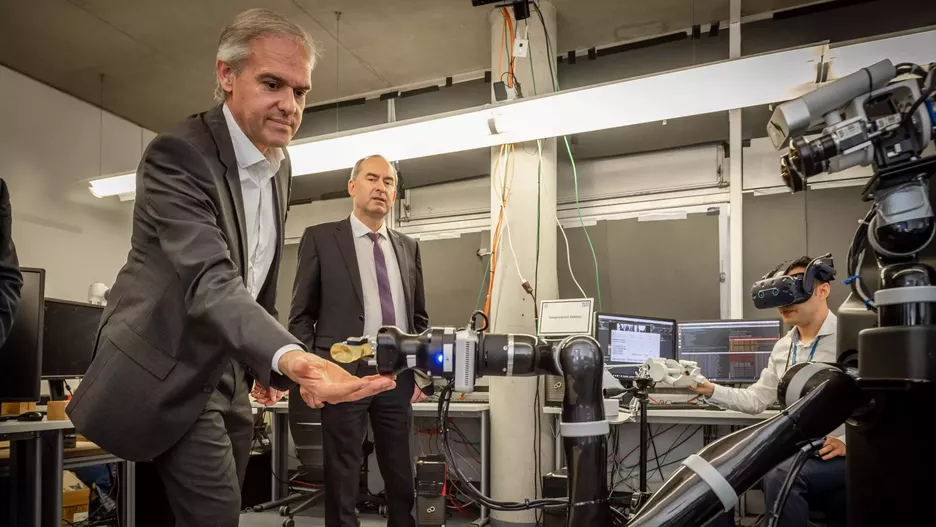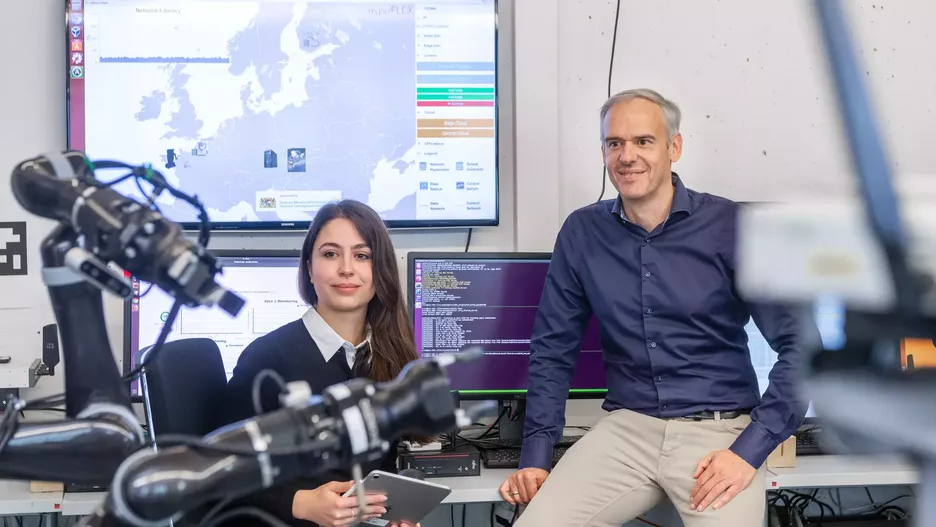Cutting-edge research on 6G at TUM
Research |

Bavarian Minister of economic affairs Hubert Aiwanger visits the 6G Future Lab Bavaria
It is the goal of 6G Future Lab Bavaria to study the most important fundamentals of the sixth mobile communications generation and make the results available for private-sector development and standardization. The project was launched in May 2021 and involves 12 research chairs at TUM.
Minister of economic affairs and deputy minister president Hubert Aiwanger:
“With the 6G Future Lab located at TUM, we have one of the most important 6G research sites here in Bavaria. 6G will make many high-tech applications possible – from remote surgery to holograms. Rather than waiting for competitors abroad, we are actively developing the latest mobile communications standard here. That is why we launched our Bavarian 6G initiative more than three years ago and provided four million euros in funding to the 6G Future Lab Bavaria.”
Munich as an ideal research location
Wolfgang Kellerer, Chair of Communication Networks and project leader of the Future Lab, said: “The 6G Future Lab Bavaria will not only deliver decisive impetus to the Bavarian economy. It will also position TUM at the forefront of 6G research. Munich is the ideal location for this initiative because the most important IT companies have a research and development center here.” Ongoing cooperation between TUM and some of these companies underscores the economic importance of research.
Focus on people
Whereas 5G focuses rather on communications between machines, 6G is centered around humans. For applications in which a person interacts with a machine, for example with nursing care robots or telesurgery, the interface must be extremely precise and reliable. A fast data connection and maximum security are also essential.
Since the project launch, the researchers have already implemented the first decisive and fundamental 6G technologies. These include the development of digital twins using artificial intelligence (AI), which permit efficient network management and more powerful, resource-conserving communications. Another focus of the project is on the comprehensive security of 6G. Data must be encrypted in a way that will also withstand the power of quantum computers in the future. A specially developed microchip will ensure that this innovative encryption can be implemented in the hardware both in terms of performance and energy efficiency.
Further information and links
- Prof. Wolfgang Kellerer holds the Chair of Communication Networks at TUM. His research focuses on fundamental methods for communication networks.
- The following TUM professorships are participating in the Bavarian 6G Future Lab: Communication Networks, Media Technology, Theoretical Information Technology, Network Architectures and Services, Data Processing, Machine Learning, Integrated Systems, Communications Engineering, Connected Mobility, Security in Information Technology, Methods of Signal Processing, Coding for Communications and Data Storage.
- The Bavarian 6G Initiative is operating as part of the Hightech Agenda Plus of the Bavarian state government.
